Games are becoming more accepted as a form of entertainment, as technology is continually evolving and becoming more impressive. Entertainment takes many forms: Film, Music, Theatre. And often, all three have been called 'art'. When any of them are particularly striking, or passionate, or thought provoking, people say 'it was a masterpiece'. It was art. However, controversially, games are sometimes seen as art as well, but it has raised debates online about whether art is just a throwaway term now, and should only be applied to images, or when pencils hit paper.
When people outside the gaming community think of video games, it is likely they are thinking about Grand Theft Auto and Call of Duty. Both of these titles have negative connotations due to the effect they are believed to have on children. Studies have shown that video games can install more violent and aggressive attitudes in children - especially if they've played the aforementioned games. But in truth, children should not be playing them. A question that frequents the forums of online gaming pages is 'how can someone enjoy something so violent?' To answer, many gamers have said 'for the same reason you enjoy watching violent films'. It may be because there is a sense of responsibility about pushing a button that results in the loss of a digital life, but games are not as two dimensional as this. Alongside the game's mechanics - which may or may not be violent - there is story, and animation and skill. People are exposed more to 'violent' games, which limits their understanding, and amongst this, the games that are beautiful in all regards of mechanics, story and animation, are lost. In this situation, I point people in the direction of games such as Journey, Abzu, and What Remains Of Edith Finch. I considered all of these games, and more, to be striking, passionately made, and thought provoking, and yet the argument still exists that they cannot be art. This attitude is slowly changing, as I have seen in an article by Chris Melissinos, who wrote the headline: Video Games Are One of the Most Important Art Forms in History. He writes about how games transcend any one art form, because they are a collection of many. In another article, by Brian Moriarty, he writes: It's Becoming Harder to Deny Video Games 'Art' Status'. Moriarty makes a good point in this article, and begins by defining what people mean by 'art'. Although it is difficult to create criteria that allow us to define what art really is, he done well to narrow down - and accurately pinpoint - what most people are thinking when they hear 'art'.
There are still many divisions that many believe should prevent games from being deemed as art. No source was given for this quote, but It has been said that a major difference between what we already know as art, and games, is you can win a game. Obviously, there is not competition or end goal when viewing art, so the motivation is different. Art critic Jonathan Jones is confident in the fact video games are not art. Despite an argument from the previous articles that games can be personalised to suit the player while the artist does not lose credit, Jones argues that the game belongs to no one. If the player claims a personal vision of the game, the game no longer belongs to the creator. Jones' definition of art is much more complex than the criteria created by Moriarty, in that he states: 'a work of art is one person's reaction to life. Any definition of art that robs it of this inner response by a human creator is a worthless definition. Art may be made with a paintbrush or selected as ready-made, but it has to be an act of personal imagination.' Jones also compares video games to chess, in an analogy that holds a degree of accuracy. He says that chess, although a great game, does not turn the chess player into an artist. They are still a chess player. In other words, the creator of a game is not necessarily an artist, but a game designer, and therefore they should be held in separate fields.
While I can see where Jones' argument stems from, I still feel I can argue that generalising video games and reducing them to a single genre, while remaining ignorant of the depth that a good narrative, soundtrack, and art style can bring, to form an argument against them would be wrong. This is not to say that all games are brilliant, as there are still many that definitely are not. Not all games have emotional depth either, but I still disagree with the article Jonathan Jones has written.


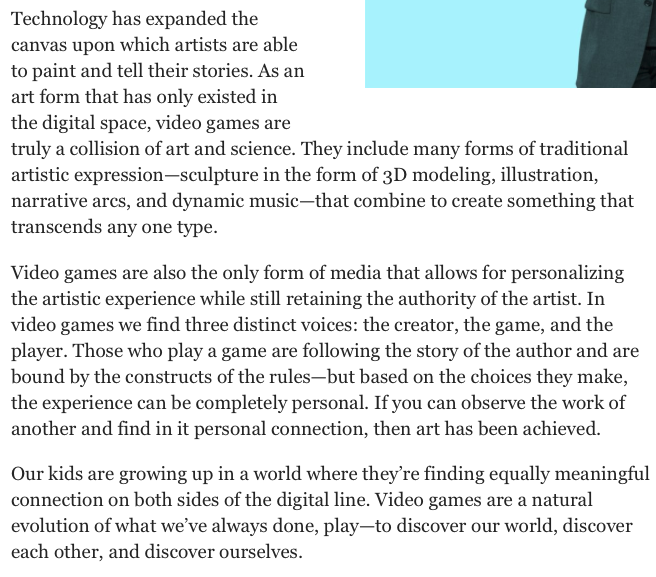
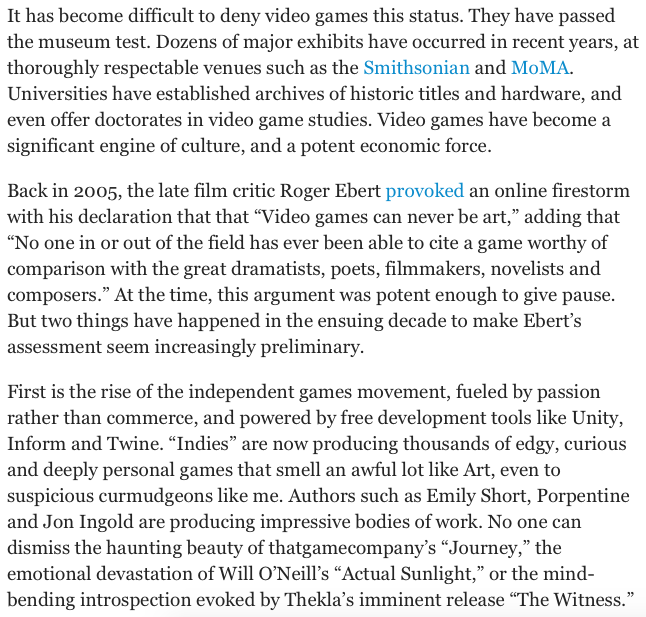
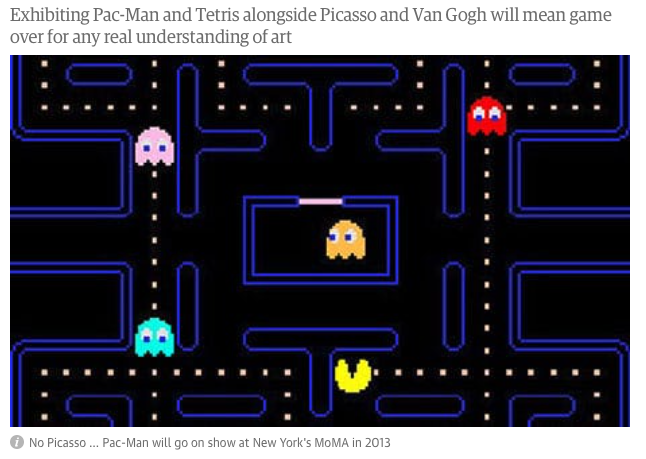
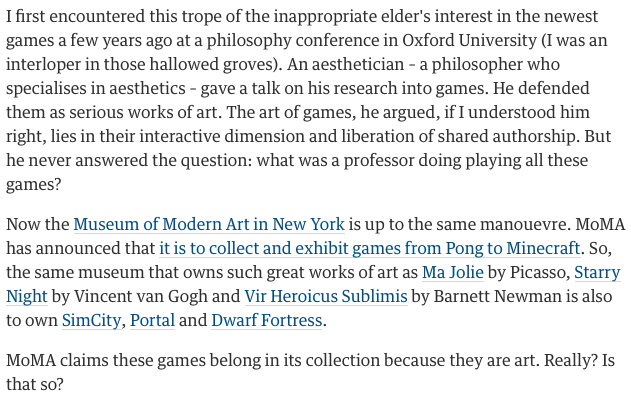





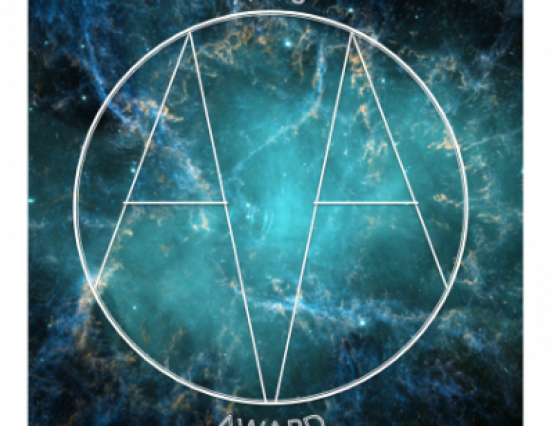

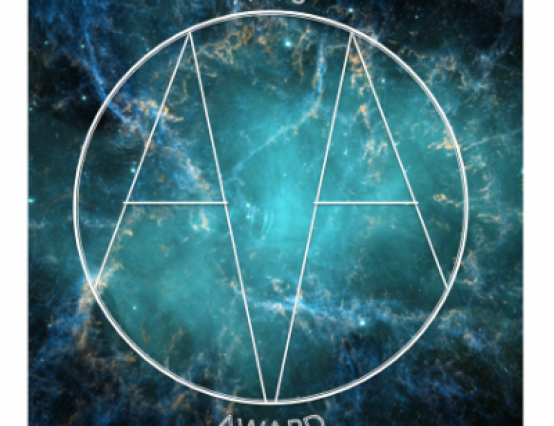
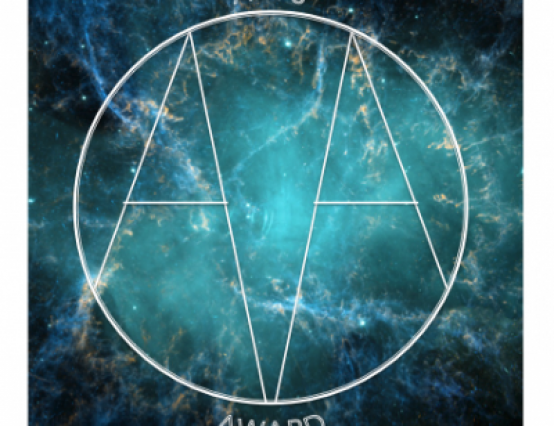



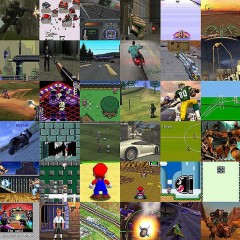

Absolutely. Some (not all) can be considered digital art for sure. The creativity in producing such games and the artistic talent it takes to physically create is worthy of being an art form.